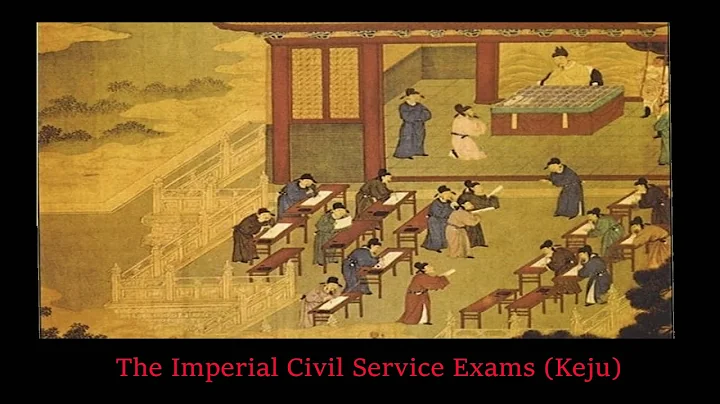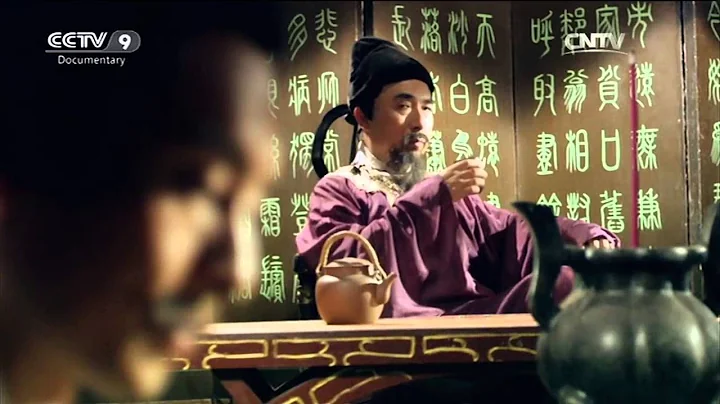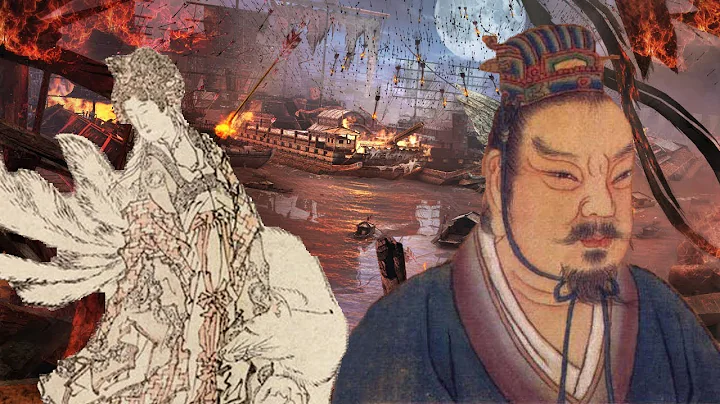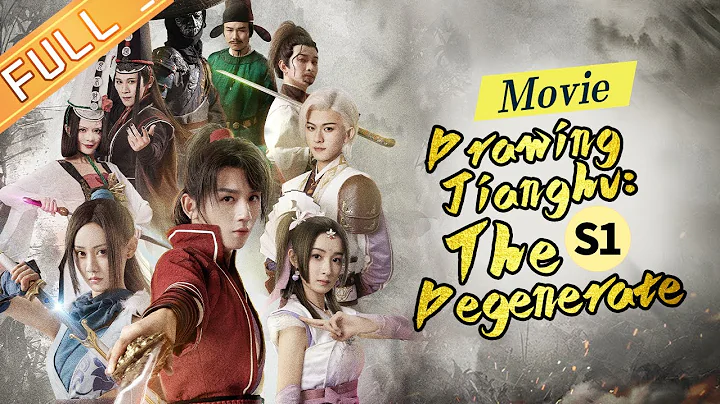On July 4, 1904 (the twenty-first day of the fifth lunar month), China held the last imperial examination in history, and the imperial examination system that had lasted for more than 1,300 years came to an end.

The palace examination, the last stage of the imperial examination
In the early morning of July 4, 1904, the 273 tributes selected in the examination of the Ministry of Rites entered the Baohe Hall through the middle left door. Various rituals and etiquette, preparing to participate in the imperial examination nominally administered by the emperor. This is the final stage of the three-year national civil service examination. The tributes were rearranged according to the results of this exam. The top three will be awarded Jinshi and . The second and third top will be awarded Jinshi origin and the same Jinshi origin respectively. At 10 o'clock in the morning, the test questions were handed out. They were questions about current affairs and policy raised in the name of the emperor. The questions were about five to six hundred words long.
The tributes immediately began to write countermeasures and express their opinions and suggestions on the issues raised by the emperor. There is no limit to the length of the countermeasure article, but the normal limit is 2,000 words. It is stipulated that the words must be in formal style, the writing must be well-organized, and there must be no oversight. The deadline for handing in papers is the end of the day. The top three candidates in this palace examination are: Liu Chunlin, the top candidate, Zhu Ruzhen, the second place winner, and Shang Yanliu, the top candidate. The tributes who participated in this palace examination include Tan Yankai, Tang Hualong, Pu Dianjun, Shen Junru, etc. The Qing government announced the abolition of the imperial examination the following year, so the Jiachen imperial examination became the last imperial examination in Chinese history.
China's last imperial examination was held in 1904. It can be said that this time it is not as important as the imperial examinations in so many years, especially in the Tang and Song Dynasties. At the time of the last imperial examination, the Russo-Japanese War had already started on Chinese soil. Ever since the Opium War, China had been beaten so hard by the great powers that it could not hold its head high. The whole country was in a state of sluggishness. The Qing Dynasty It is already crumbling. Therefore, the last imperial examination was far less glorious than in the past, and the last number one scholar was selected completely like a joke. Everyone knows that it was still the period when Empress Dowager Cixi was in power, and her cultural level was not high. In the end, the papers for the top ten Jinshi in the imperial examination were presented to the Empress Dowager, who was appointed by her handwriting, because in history, the number one scholar, the second best scholar, and the third best scholar have always been the best. It was appointed by the emperor's imperial pen. Empress Dowager Cixi acted like a joke when she appointed the number one scholar. She doesn't care about the quality of the article, she only looks at the candidates' names.

Illustration of the Imperial Examination System
When she saw that the candidate named Zhu Ruzhen was named the first place, she felt very unhappy. Everyone knows that the world of Ming Dynasty was dominated by the surname Zhu. The Qing Dynasty was established after defeating the Ming Dynasty, and there were various anti-Qing and restoration movements during the Qing Dynasty. So when she heard that this person's surname was Zhu, the Empress Dowager Cixi felt It's so unlucky. How can the surname be Zhu? This person can't be the number one scholar, and he can't be determined. Then I saw that this person was from Cantonese, which was even more taboo. The Empress Dowager Cixi has always hated Cantonese, because Kang Youwei was a Cantonese and the person she hated the most. Sun Yat-sen was also a Cantonese and he was the person she hated most. As soon as she saw that this guy was from Cantonese, and it was worse, she threw the paper away. Then look at the person ranked second, with beautiful handwriting, named Liu Chunlin. That year happened to be a severe drought in China. The Empress Dowager Cixi thought: "Chunlin - Chunlin means rain. We are experiencing a drought in China. This My name is Liu Chunlin, auspicious and auspicious..." So he directly appointed the number one winner. This is how Liu Chunlin became the last number one pick.
Of course, by that time, the imperial examinations no longer meant much, because the Western education system had begun to be established in China, and the world trend was also moving forward. Peking University Hall , which is the predecessor of Peking University . As one of the "New Deals" of the Reform Movement of 1898, the school was founded on July 3, 1898. It was the first national university in modern China. Its establishment marked the beginning of national higher education in modern China. As we all know, the imperial examination system was only abolished in 1905. When the Capital University was established in 1898, the imperial examination system had not yet been abolished, so the education system at that time became a "dual-track system." Students can continue to take the imperial examinations, or they can choose Western education methods, go to middle school, go to university, or take another path.Of course, if you wanted to be an official in China at that time, it was faster to take the imperial examination. But at least China imitated the West and established China's first modern comprehensive university, which was already a very big progress at the time.
Regarding the imperial examination, some people say it is good and some people say it is not good. It can be said that it is a mixed blessing. There is nothing in this world that has only advantages and no disadvantages. There are definitely disadvantages. However, this imperial examination, which has lasted for more than 1,300 years, should be said to be the unique political wisdom of mankind in Chinese history. It has been recognized globally. No other civilization system has produced such a talent selection system. Today, everyone is particularly keen on discussing what are the channels for upward advancement in society. The college entrance examination and civil service examinations, which are the pathways for ordinary people to advance upward, all have the shadow of the ancient imperial examinations.

Sichuan Gongyuan
The upward path is called the social ladder in the West. In Western history, there was no perfect civil servant selection system. The only upward path was through military merit and war. The Roman Empire finally collapsed because the rulers finally failed to figure out how the people of such a large empire could enter the upper echelons through the social ladder and were unable to create cohesion. Starting from Caesar the Great , the Roman Empire had only one upward path for ordinary people, and that was war. In the end, they could only resort to the desperate path of resorting to militancy and depleting the people and money, and the empire collapsed. Therefore, a huge military empire cannot last long, because its upward path is war and force. The people have no upward path and cannot form the strong cohesion of a large empire, so they split into many small countries. Other large empires maintained by military means, including Rome , Mongolia, Ottoman Turkey, Spain, etc., all collapsed in the end because they did not establish such a very excellent and intelligent civil servant selection system.
Because China has this imperial examination system, whether you are in Guangdong, Gansu, or Northeast China, no matter where you are, this system provides you with an upward path, and you will feel that this country belongs to Ours will have a sense of belonging and will work hard. Therefore, after China established the imperial examination system from the Sui Dynasty , there has almost never been a dynasty ruled entirely by aristocrats. In the Yuan and Qing Dynasties, there were royals as prime ministers, but in all other dynasties, the vast majority of prime ministers were civilians. Origin, not to mention other ministers - ministers and governors of various provinces, most officials are from civilians and have passed the exam. In this way, a class was formed, which was the bureaucratic class, or the scholar-bureaucrat (that is, intellectual) class. This class has always ruled this huge country. No matter how the country is divided in the middle, it can finally unite into a big country.
Therefore, the imperial examination system is one of the most intelligent systems in human history. It established a system that separated officials and local people. People must pass the examination and become Jinshi before they can become officials (of course, there are also people who can be promoted to officials. Hai Rui is to promote people. ). If you fail the exam, you can only be an official. Generally speaking, an official can never become an official. For example, Song Jiang was an official in Chinese history. It is impossible to say that if the county magistrate died or was transferred, Song Jiang would be promoted, and he would change from a low-level official to a county magistrate. That would not work. All officials above the county magistrate must pass the examination, otherwise they can only be officials, and officials will always be officials. There is a strict system here.

Today’s Western democratic system is very similar to the system of separation of officials and local staff in the Chinese imperial examination system. In the West, officials are now elected by the people, and then officials appoint officials. Officials can serve for a long time, but officials have terms of office, and officials and officials are always separated. It cannot be said that the officials are gone, and officials are promoted to become governors or mayors of the state. Then, then No, everyone has to re-elect, just like we have to re-take the exam. Therefore, the imperial examination system is a very advanced system. This should be said to be an important means in Chinese history to maintain a large empire based on political wisdom rather than military capabilities. It has previously maintained what should be considered the oldest empire in the world. .





















